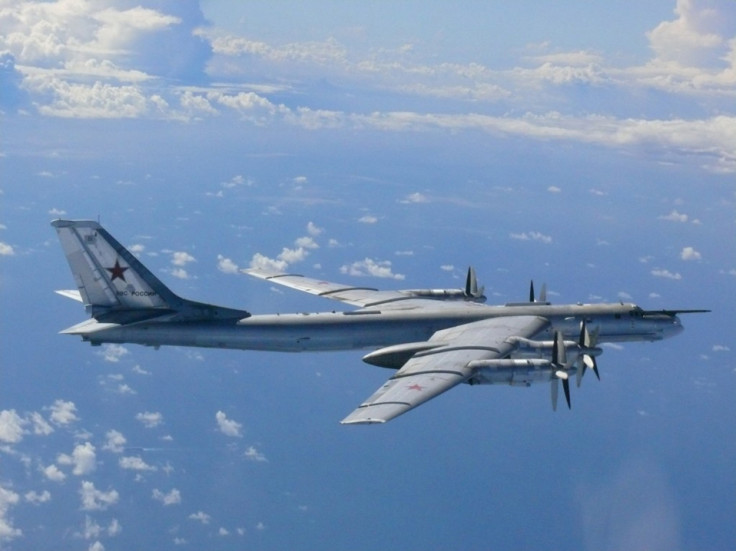Russian bombers fly close to California coast to wish US pilots a happy Fourth of July

On the Fourth of July, US fighter jets were met by an unlikely pair off the coast of California, a pair of Russian bombers. The Russian pilots reportedly had a message to deliver to their American counterparts on Independence Day.
"Good morning, American pilots. We are here to greet you on your Fourth of July Independence Day," they said, according to the North American Aerospace Defense Command (Norad).
While the greeting was unexpected, the close encounter between the Russian and American aircrafts was not. Russian military aircrafts have previously flown close to US airspace.
Over a year before, on 4 June 2014, US fighter jets encountered Russian bombers off the coasts of Alaska and California after several encounters over the Pacific, CNN reported.
US defence officials said four long-range Russian Tu-95 Bear-H bombers had flown into the US air Defense Identification Zone, off the coast of Alaska, when they were met by US F-22 fighter jets. The US Air Defense Identification Zone extends 200 miles from the North American coast, according to CNN.
Two of the Russian planes encountered flew away heading west, but the other two flew south. The remaining two Russian bombers were later intercepted by US F-15 fighters within 50 miles of the coast of California.
According to CNN, the latest aerial encounter occurred between Russian Tu-95 "Bear" bombers and American F-15 fighter jets. A Norad spokesman told reporters that the Russian pilots had used an emergency aircraft communication channel to deliver their holiday inspired message.
While the spokesman did not refer to the message as a threat, he said the incident was "potentially destabilising" because the approach was unannounced and the Russian bombers were nuclear-capable.
Two other Russian Tu-95 bombers were intercepted off the southern coast of Alaska that day. However, in neither encounter did the Russian bombers enter US airspace, Norad spokesman Michael Kuckarek told reporters at the time of the incident.
"These are not unprecedented flights, but we are postured to respond whether Alaska or California. At no time did the bombers enter North American sovereign airspace," he said.
© Copyright IBTimes 2024. All rights reserved.






